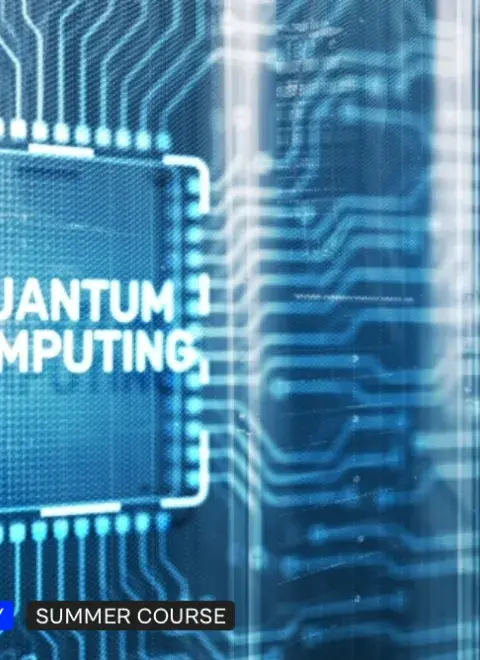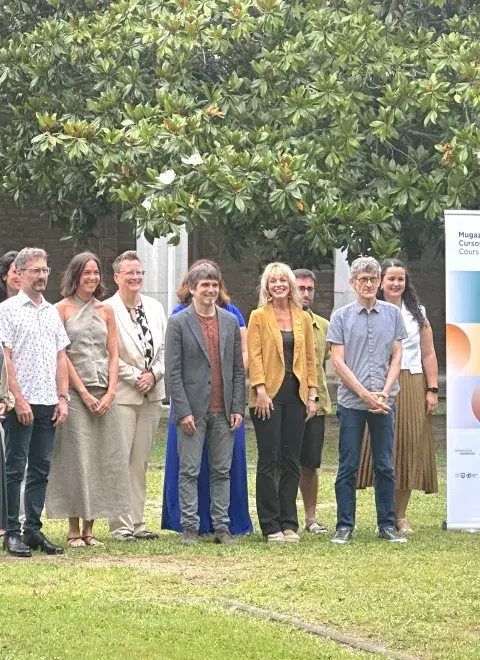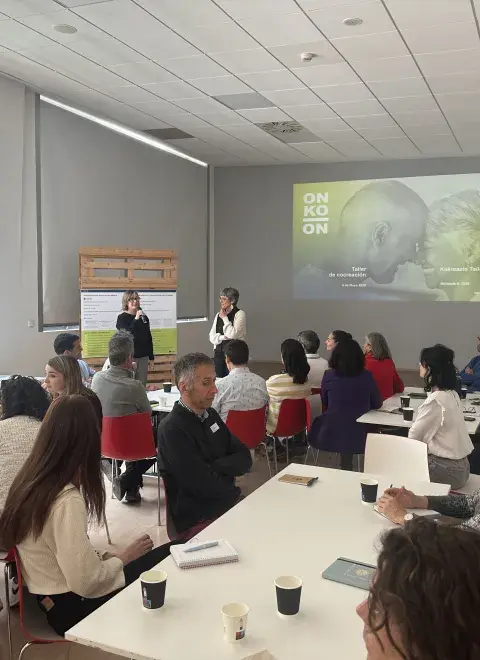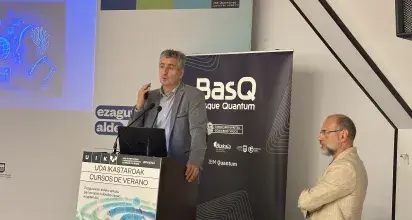
In the image, Javier Aizpurua (at the lectern) and Igor Campillo, directors of the summer course.
- Actualidad
Quantum Computing summer course concludes with historic announcement of Europe’s most advanced Quantum computer's inauguration
Quantum Computing summer course, a cutting edge training encounter by the hands of experts in the field of quantum technology ends successfully unveiling the big news: The super Quantum Computer will see the light next October 15th.
The summer course "Quantum Computing: From Fundamentals to Applications" came to a close in Donostia on September 12, after three days of intensive debate and training with international experts. Organized by BasQ – Basque Quantum and the Donostia International Physics Center (DIPC), within the UPV/EHU–UIK Summer Courses, the program offered participants a journey through the latest advances in quantum science—from theoretical foundations to state-of-the-art hardware, algorithms, software development, and practical applications.
The closing ceremony delivered a milestone announcement: on October 15, Lehendakari Imanol Pradales will inaugurate IBM–Basque Country, the most advanced quantum computer in Europe. The news was shared by Juan Ignacio Pérez Iglesias, Minister of Science, Universities, and Innovation, who emphasized the strategic importance of this new infrastructure for the Basque scientific and industrial ecosystem. A Global Meeting Point for Quantum Knowledge
Over three days, the Miramar Palace hosted renowned researchers and professionals from institutions such as RIKEN, ETH Zurich, CSIC, IBM, and Iberdrola, consolidating Donostia as a hub for international dialogue in quantum technologies. Special attention was given to quantum–classical hybridization, a field expected to reshape industry in the near future.
The course was opened by Javier Aizpurua, director of BasQ, together with Igor Campillo, director of Euskampus Fundazioa, and Maialen Agirre, director of the Department of Science, Universities and Innovation - Eusko Jaurlaritza / Basque Government. From the outset, the program combined high-level lectures with hands-on sessions, offering participants a comprehensive and practical immersion.
Key Contributions
Among the many highlights: Juan José García Ripoll (CSIC), in the picture, provided a broad overview of four decades of simulation and optimization in quantum computing, outlining both current applications and future challenges. Sebastián Bergeret (CFM) explored superconductivity as a macroscopic quantum phenomenon enabling the development of quantum devices. Fernando González Zalba (CIC nanoGUNE) detailed advances in semiconductor quantum dots, stressing the promise of silicon-based spin qubits.
The second day focused on hardware platforms and software tools. Claudia Politi (ETH Zurich) guided participants through the trapped-ion approach, addressing scalability, coherence times, and universal gate implementation. Carlos Antón Solanas (Universidad Autónoma de Madrid) examined quantum light sources and photonic circuits, highlighting challenges and perspectives for quantum photonic computing. From the software side, Aitor Moreno Fdz. de Leceta (LKS Next) shared industry perspectives on working with quantum development platforms, while Radha Pyari Sandhir (IBM) introduced attendees to Qiskit, allowing participants to test concepts through practical exercises.
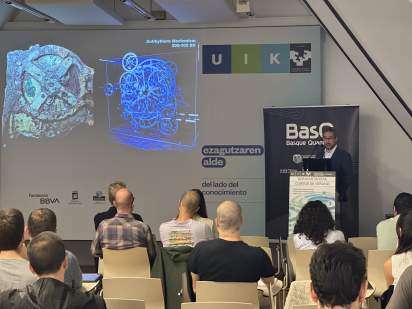
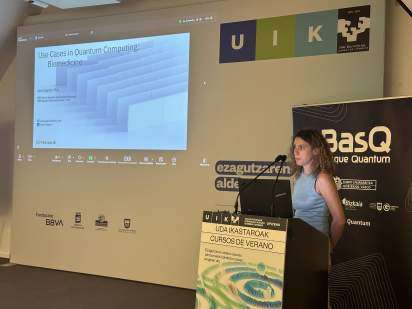
The final day looked at real-world use cases. Javier Aizpurua and Igor Campillo presented BasQ’s strategy to build a global quantum ecosystem. They introduced the session of this last day of Quantum Computing course presenting BasQ strategy as a world’s leading quantum ecosystem and the fields of application that are target in this innovative initiative. Both highlighted the importance of the quantum computing infrastructure and the enablement of professionals in this research area.
Sara Capponi (IBM Almaden), in the picture, showcased biomedical applications of quantum simulators for immunogenicity prediction. “Quantum Computing approach identifies specific patterns from classical Machine Learning methods", she affirmed.
Miguel Rodríguez (Iberdrola) presented three applications for the energy sector: optimizing routes, battery placement, and grid topologies. Closing the program, Prof. Mitsuhisa Sato (RIKEN) offered insights into hybrid quantum–classical architectures, an area where RIKEN’s experience serves as an international reference.
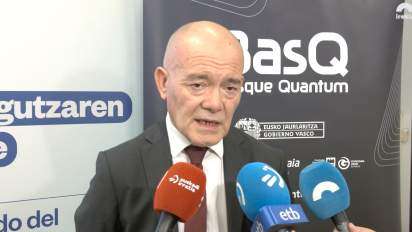
Towards the Inauguration of IBM–Basque Country
The announcement of the upcoming IBM Quantum System Two inauguration marked the high point of the summer course. Housed in the new Ikerbasque building, this installation will join IBM’s global network of cutting-edge quantum computers, currently limited to only two other sites—Japan and the United States. Its arrival places the Basque Autonomous Community at the forefront of quantum research in Europe.
As Minister Pérez Iglesias (in the picture) underlined, “this inauguration marks the launch of a technological infrastructure that will strengthen the Basque scientific-technological system and its business network. It will promote the generation of knowledge in various areas, open up new business opportunities and attract highly qualified people.”
With the summer course concluded and the countdown to October 15 underway, the Basque Country is poised to become a European leader in quantum innovation, linking top-level training with world-class infrastructure.
More about Basque Quantum.

Suscríbete a Newskampus
Y recibe nuestras últimas noticias en tu email.
